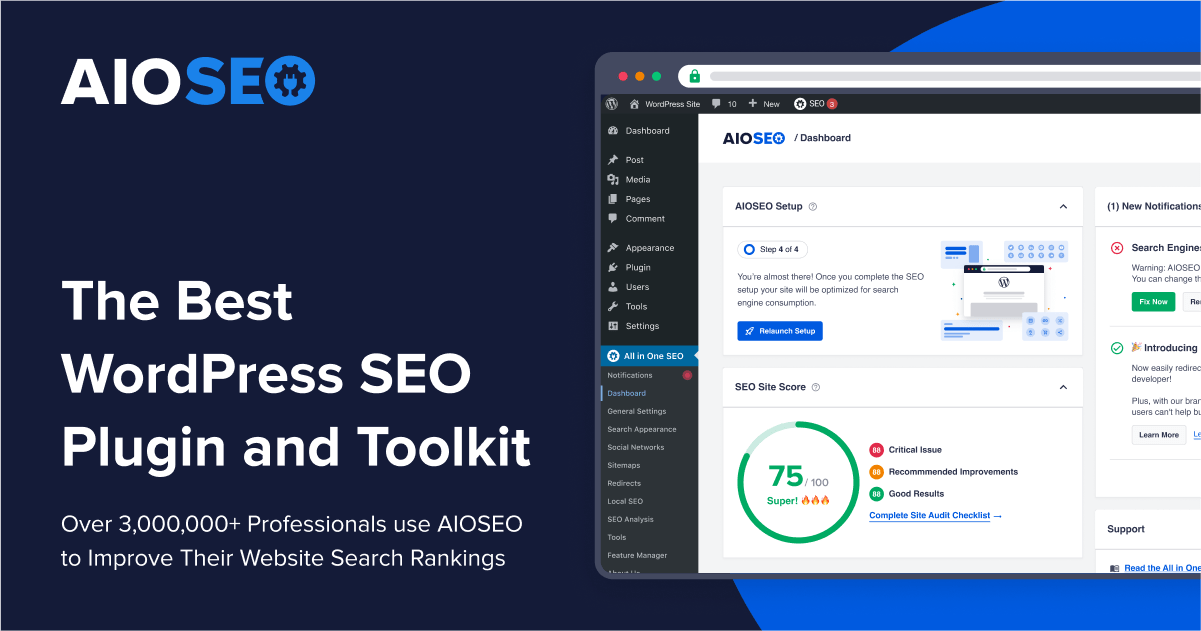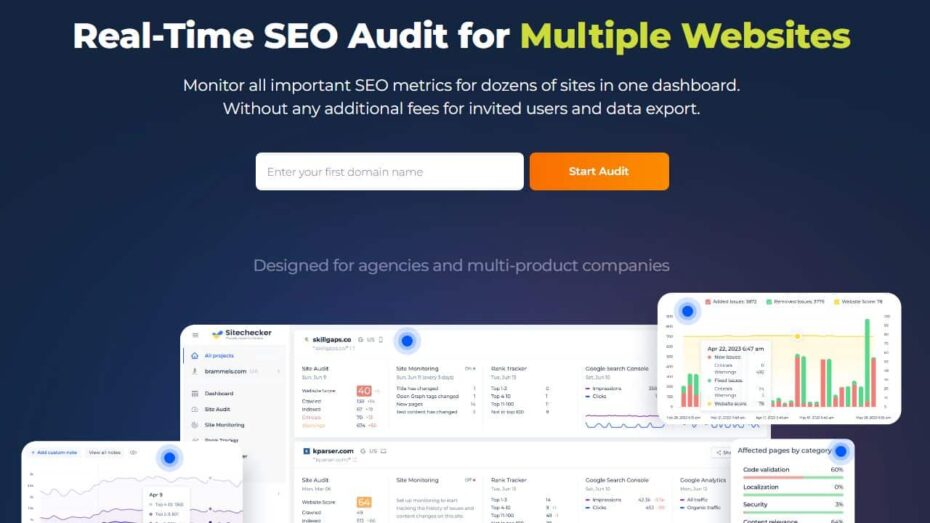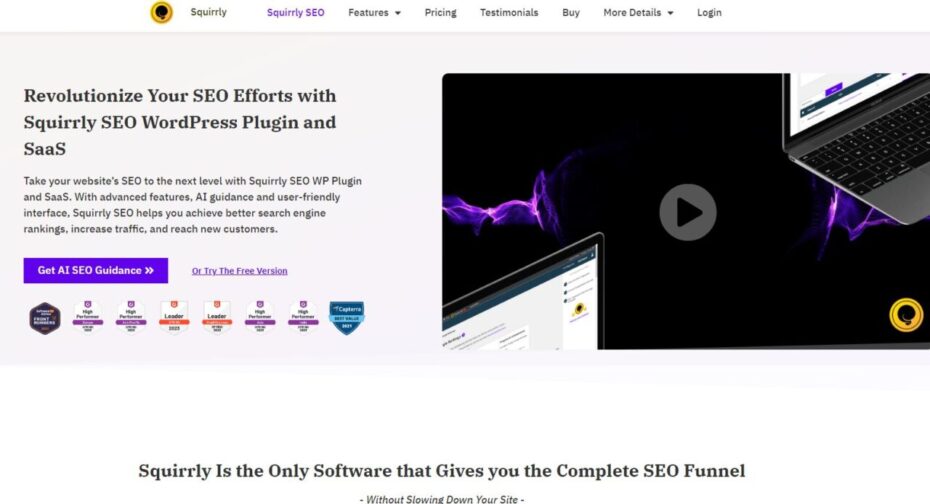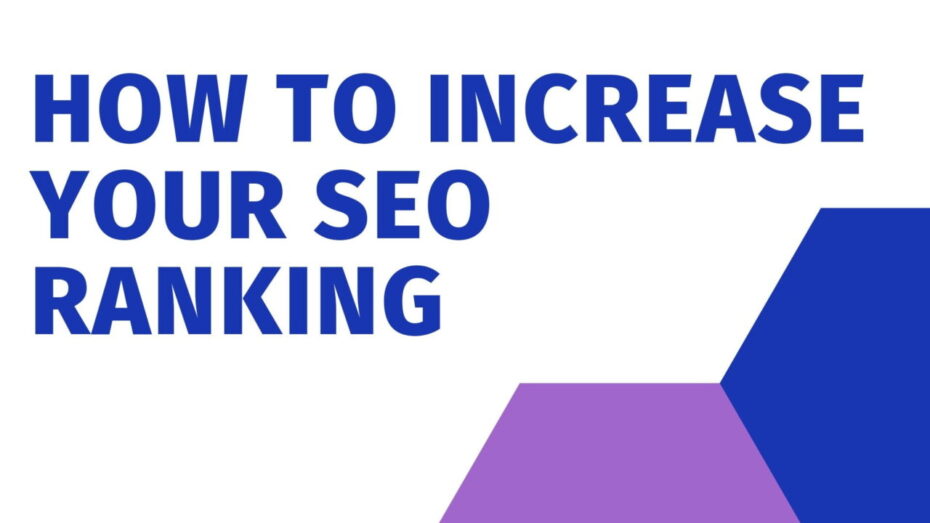Table of Contents
Increase your SEO ranking by implementing proven strategies that enhance your website’s visibility and drive more organic traffic. Achieving higher search engine rankings is crucial for gaining a competitive edge and reaching your target audience effectively. This comprehensive guide will provide you with valuable insights and actionable techniques to boost your SEO performance.
My suggestion is to start with a solid foundation in both on-page and off-page SEO. On-page SEO focuses on optimizing individual pages on your site, including content, HTML source code, and site architecture.
Off-page SEO, on the other hand, involves activities like link building and social media marketing to improve your site’s authority and reputation. I believe combining these approaches will yield the best results for your SEO efforts.
Mastering the Basics to Increase Your SEO Ranking
Increasing your SEO ranking starts with mastering the basics. Understanding how search engines operate, the importance of keyword research, and optimizing your website structure are fundamental steps. By building a strong foundation, you set yourself up for long-term SEO success.
My recommendation is to begin by familiarizing yourself with the inner workings of search engines. This knowledge will inform your strategies and help you make informed decisions. I advise focusing on these core areas to establish a solid SEO groundwork.
SEO Services Recommendations
 AIOSEO
|  Sitechecker
|  Squirrly
|
Understanding How Search Engines Work
Search engines like Google use complex algorithms to rank websites. These algorithms consider factors such as content relevance, quality, and user experience. I believe knowing these factors helps you tailor your website to meet search engine criteria.
Most importantly, search engines prioritize user intent. They aim to provide users with the most relevant and useful results for their queries. My suggestion is to create content that aligns with what users are searching for. I strongly believe this approach improves your chances of ranking higher.
Another crucial aspect is the crawling and indexing process. Search engines use bots to crawl the web and index content. I would say it’s essential to ensure your site is easily crawlable and indexable by these bots. This will enhance your visibility in search results.
Lastly, staying updated with algorithm changes is vital. Search engines frequently update their algorithms, impacting how sites are ranked. My advice is to keep abreast of these updates and adjust your strategies accordingly.
Importance of Keyword Research and Placement
Keyword research is the cornerstone of effective SEO. Identifying the right keywords helps you target the phrases your audience is searching for. I think investing time in thorough keyword research is crucial for success.
My recommendation is to use tools like Google Keyword Planner or SEMrush. These tools provide insights into search volume and competition for various keywords. I advise selecting keywords that have a good balance of high search volume and low competition.
Once you’ve identified your keywords, strategic placement is key. I suggest incorporating them naturally into your content, titles, and meta descriptions. I point out that keyword stuffing can harm your rankings, so maintain a natural flow.
Additionally, consider long-tail keywords. These are longer, more specific phrases that often have less competition. I believe targeting long-tail keywords can help you capture niche segments of your audience, driving more targeted traffic to your site.
Optimizing Website Structure for SEO
A well-structured website is essential for good SEO. Optimizing your site’s structure helps search engines crawl and index your content more efficiently. I recommend focusing on creating a logical, user-friendly navigation.
My advice is to organize your content into clear, hierarchical categories. This makes it easier for users and search engines to find relevant information. I suggest using descriptive URLs that include your primary keywords, as they can improve both user experience and SEO.
Another important aspect is internal linking. I would say linking to related content within your site helps search engines understand the relationship between your pages. It also keeps users engaged by guiding them to additional valuable content.
Lastly, ensure your site is mobile-friendly. I strongly believe that with the increasing use of mobile devices, having a responsive design is critical. Google also considers mobile-friendliness as a ranking factor, so it’s essential for both user experience and SEO.
Powerful On-Page SEO Strategies for Better Rankings
To increase your SEO ranking effectively, mastering powerful on-page SEO strategies is crucial. On-page SEO focuses on optimizing individual web pages to rank higher and attract more relevant traffic. By honing these techniques, you can significantly improve your site’s visibility and user experience.
I suggest prioritizing content quality, header tags, meta descriptions, and site speed. These elements are fundamental to on-page SEO and can make a significant difference in your ranking. I advise implementing these strategies to see tangible improvements in your SEO performance.
Crafting High-Quality, Engaging Content
Creating high-quality, engaging content is at the heart of any successful SEO strategy. Search engines prioritize content that is relevant, informative, and engaging for users. I believe that focusing on these aspects can help you attract and retain visitors.
Most importantly, your content should address the needs and interests of your audience. I recommend conducting thorough research to understand what your target audience is searching for. This will enable you to create content that provides genuine value.
Additionally, using the primary keyword and related keywords naturally within your content is essential. I suggest integrating these keywords in a way that flows naturally and enhances the reader’s experience. I point out that overusing keywords, or keyword stuffing, can harm your SEO efforts.
Lastly, updating your content regularly is vital. I advise keeping your content fresh and relevant by adding new information and insights. This not only improves your SEO ranking but also keeps your audience engaged and coming back for more.
Utilizing Header Tags and Meta Descriptions
Header tags and meta descriptions play a significant role in on-page SEO. These elements help search engines understand the structure and context of your content. I recommend using them strategically to improve your SEO performance.
My suggestion is to use header tags (H1, H2, H3, etc.) to organize your content into clear sections. This makes it easier for both users and search engines to navigate your site. I believe that using relevant keywords in your headers can enhance your SEO.
Meta descriptions are also crucial for attracting clicks from search engine results pages (SERPs). I would say writing concise, compelling meta descriptions that include your primary keyword can increase your click-through rate. This, in turn, can positively impact your ranking.
Additionally, ensure that each page on your site has a unique meta description. I point out that duplicate meta descriptions can confuse search engines and harm your SEO efforts. My advice is to create tailored descriptions that accurately reflect the content of each page.
Lastly, keep your meta descriptions within the recommended length of 150-160 characters. I strongly believe this ensures that your descriptions are fully displayed in search results, making them more effective in attracting clicks.
Enhancing User Experience with Fast Loading Times
A fast-loading website is essential for both user experience and SEO. Search engines prioritize sites that load quickly, as they provide a better experience for users. I recommend focusing on optimizing your site’s speed to improve your ranking.
My suggestion is to start by analyzing your site’s current performance using tools like Google PageSpeed Insights. These tools can identify areas where your site may be lagging and provide actionable recommendations. I believe addressing these issues promptly can lead to significant improvements.
Most importantly, optimizing images and other media on your site can have a substantial impact on loading times. I advise compressing images and using formats that balance quality and speed. This can greatly enhance your site’s performance.
Another key factor is leveraging browser caching and content delivery networks (CDNs). I point out that these technologies can reduce server load and speed up content delivery to users around the world. Implementing them can improve both speed and user satisfaction.
Lastly, minimize the use of heavy scripts and unnecessary plugins. I strongly believe that keeping your site’s code lean and efficient can prevent slowdowns and improve overall performance. This not only benefits your SEO but also enhances the user experience.
Off-Page SEO Techniques to Boost Your Website Authority
To increase your SEO ranking, mastering off-page SEO techniques is essential. These strategies focus on activities outside your website that enhance your site’s authority and reputation. By building a strong online presence, you can significantly boost your search engine rankings.
My recommendation is to prioritize building quality backlinks, leveraging social media, and engaging in guest posting and collaborations. These methods can drive more traffic to your site and improve your overall SEO performance. I advise incorporating these techniques into your SEO strategy for optimal results.
Building Quality Backlinks from Reputable Sites
Quality backlinks are a cornerstone of effective off-page SEO. They signal to search engines that your site is trustworthy and authoritative. I believe focusing on acquiring backlinks from reputable sites can greatly enhance your SEO ranking.
Most importantly, aim for backlinks from sites with high domain authority. I suggest reaching out to industry leaders, bloggers, and influencers in your niche. Building relationships with these entities can lead to valuable backlink opportunities.
My advice is to create high-quality, shareable content that others will want to link to. I point out that infographics, research studies, and comprehensive guides are particularly effective for attracting backlinks. I recommend promoting your content actively to increase its visibility and backlink potential.
Lastly, monitor your backlink profile regularly. I advise using tools like Ahrefs or Moz to track your backlinks and identify any low-quality or spammy links. Disavowing these links can protect your site from potential penalties and maintain your SEO health.
Leveraging Social Media for Increased Traffic
Social media platforms are powerful tools for driving traffic and enhancing your SEO efforts. By sharing your content on social media, you can reach a broader audience and attract more visitors to your site. I suggest integrating social media marketing into your SEO strategy.
I believe that maintaining an active presence on platforms like Facebook, Twitter, LinkedIn, and Instagram is crucial. My recommendation is to share your content regularly and engage with your audience. This can increase your content’s reach and generate more traffic.
Additionally, I advise utilizing social media advertising to promote your content to targeted audiences. Paid campaigns can amplify your reach and attract more visitors to your site. I think this approach can complement your organic social media efforts.
Another effective strategy is to participate in relevant online communities and forums. I would say engaging in discussions and sharing your expertise can establish your authority and drive traffic to your site. This not only boosts your SEO but also builds your brand reputation.
Lastly, track your social media performance using analytics tools. I suggest analyzing metrics like engagement, shares, and referral traffic to understand what’s working and refine your strategy accordingly. This data-driven approach can enhance your social media and SEO efforts.
Guest Posting and Collaborations for Wider Reach
Guest posting and collaborations are excellent ways to expand your reach and build backlinks. By contributing to other reputable sites, you can tap into new audiences and establish your authority. I recommend exploring guest posting opportunities in your niche.
Most importantly, identify high-quality websites that accept guest contributions. I suggest looking for sites with strong domain authority and a relevant audience. Reaching out to these sites with well-crafted pitches can open doors for guest posting.
When writing guest posts, I believe it’s essential to provide valuable, original content. My advice is to focus on topics that resonate with the host site’s audience and include natural links back to your site. This can drive traffic and enhance your SEO.
Collaborations with other bloggers and influencers can also be beneficial. I point out that co-authoring articles, hosting webinars, or creating joint content can expand your reach. These collaborations can attract more visitors and boost your site’s authority.
Lastly, track the performance of your guest posts and collaborations. I recommend monitoring metrics like referral traffic, engagement, and backlink quality. This can help you gauge the effectiveness of your efforts and refine your strategy for better results.
Advanced SEO Tactics to Enhance Your Search Visibility
To increase your SEO ranking and achieve greater search visibility, advanced SEO tactics are essential. These strategies go beyond the basics and help you stand out in a competitive digital landscape. By implementing these advanced techniques, you can significantly boost your search engine performance.
I suggest focusing on implementing schema markup, utilizing advanced analytics, and staying updated with the latest SEO trends. These tactics will enhance your SEO efforts and ensure your site remains competitive. I believe that investing in these areas will yield substantial long-term benefits.
Implementing Schema Markup for Rich Snippets
Schema markup is a powerful tool that can enhance your search visibility by providing rich snippets. Rich snippets offer additional information directly in the search results, making your listings more attractive and informative. I recommend implementing schema markup to improve your SEO performance.
Most importantly, schema markup helps search engines understand the context of your content. By adding structured data to your web pages, you can provide search engines with detailed information about your content. I strongly believe this can lead to higher click-through rates and better search rankings.
My advice is to start with common types of schema markup, such as articles, reviews, and events. These are widely used and can provide immediate benefits. I suggest using Google’s Structured Data Markup Helper to make the implementation process easier.
Additionally, regularly testing your schema markup is crucial. I point out that Google’s Rich Results Test tool can help you ensure that your markup is correctly implemented and eligible for rich snippets. This proactive approach can maintain the effectiveness of your schema markup.
Utilizing Advanced Analytics and Tools
Advanced analytics and tools are indispensable for refining your SEO strategy and enhancing search visibility. These tools provide in-depth insights into your site’s performance, helping you make data-driven decisions. I recommend leveraging advanced analytics to optimize your SEO efforts.
My recommendation is to use tools like Google Analytics, Google Search Console, and SEMrush. These platforms offer comprehensive data on traffic, user behavior, and keyword performance. I think integrating these tools into your SEO workflow can provide valuable insights.
I advise setting up custom reports and dashboards to monitor key SEO metrics. This allows you to track progress and identify areas for improvement. I believe regular analysis of these metrics can lead to more effective optimization strategies.
Another important aspect is A/B testing. I suggest experimenting with different on-page elements, such as headlines, meta descriptions, and calls-to-action. This can help you determine what resonates best with your audience and improve your SEO performance.
Lastly, keep an eye on your competitors. I point out that tools like Ahrefs and Moz can help you analyze competitor strategies and identify opportunities for your site. Understanding your competitive landscape is crucial for staying ahead in the SEO game.
Keeping Up with the Latest SEO Trends and Updates
Staying updated with the latest SEO trends and algorithm updates is vital for maintaining and improving your search visibility. The SEO landscape is constantly evolving, and keeping abreast of these changes can give you a competitive edge. I suggest dedicating time to staying informed about SEO developments.
Most importantly, follow reputable SEO blogs and forums, such as Moz, Search Engine Journal, and Google’s Webmaster Central Blog. These sources provide timely updates and expert insights. I strongly believe that staying informed will help you adapt your strategies effectively.
My advice is to participate in SEO webinars and conferences. These events offer valuable learning opportunities and allow you to network with industry experts. I think attending these events can keep you ahead of the curve in SEO best practices.
Additionally, consider subscribing to SEO newsletters. I recommend newsletters from industry leaders like Neil Patel and Brian Dean. These newsletters provide curated content and insights, making it easier to stay updated without feeling overwhelmed.
Lastly, experiment with new SEO techniques and tools. I point out that being an early adopter of new technologies can provide a significant advantage. Continuously testing and adapting your strategies ensures that you remain agile and effective in your SEO efforts.
Measuring and Analyzing SEO Performance Effectively
To increase your SEO ranking, it’s essential to measure and analyze your SEO performance effectively. By understanding how your website is performing, you can make informed decisions to optimize your strategies and improve your search visibility. Utilizing the right tools and metrics will help you gain valuable insights into your SEO efforts.
I recommend starting with setting up Google Analytics and Search Console. These tools provide comprehensive data on your website’s traffic, user behavior, and search performance. I advise using this data to track key metrics and make data-driven adjustments to your SEO strategy.
Setting Up Google Analytics and Search Console
Google Analytics and Search Console are powerful tools for tracking and analyzing your website’s performance. Setting up these tools is the first step in gaining a deeper understanding of your SEO efforts. I strongly believe that utilizing both tools will provide you with a complete picture of your website’s health and performance.
Most importantly, Google Analytics helps you monitor various aspects of your site’s traffic and user behavior. I recommend setting up Google Analytics to track metrics such as page views, session duration, and bounce rate. These metrics offer insights into how users interact with your site.
Google Search Console, on the other hand, focuses on your site’s presence in Google search results. I advise using Search Console to monitor your site’s search performance, identify indexing issues, and track keyword rankings. This tool is essential for understanding how Google views your site.
Additionally, integrating Google Analytics and Search Console can provide even more valuable data. My suggestion is to link the two accounts to access a broader range of reports and insights. This integration can help you better understand the relationship between search performance and user behavior.
Key Metrics to Track for SEO Success
Tracking the right metrics is crucial for measuring the success of your SEO efforts. By focusing on key performance indicators (KPIs), you can evaluate how well your strategies are working and identify areas for improvement. I recommend regularly monitoring these metrics to stay on top of your SEO performance.
I advise paying close attention to organic traffic. This metric shows the number of visitors coming to your site from search engines. I think increasing organic traffic is a clear indicator of successful SEO strategies.
Another important metric is keyword rankings. I suggest tracking the performance of your primary and related keywords over time. This helps you understand how your content is performing in search results and where you can make improvements.
Additionally, monitor your site’s bounce rate and session duration. I point out that a high bounce rate may indicate that visitors are not finding what they’re looking for, while longer session durations suggest that users are engaging with your content. These metrics are vital for understanding user experience.
Lastly, keep an eye on your backlink profile. I recommend using tools like Ahrefs or Moz to track the number and quality of backlinks pointing to your site. High-quality backlinks can significantly boost your SEO ranking and authority.
Making Data-Driven Adjustments to Your Strategy
Making data-driven adjustments to your SEO strategy is essential for continuous improvement. By analyzing the data from Google Analytics and Search Console, you can identify trends, pinpoint issues, and refine your tactics. I believe that regularly reviewing and adjusting your strategy based on data is key to long-term SEO success.
Most importantly, use the insights gained from your data to address any weaknesses in your SEO efforts. My advice is to focus on areas where you see declining performance or potential for growth. This proactive approach can help you stay ahead of the competition.
I suggest experimenting with different strategies and tactics based on your data analysis. For instance, if certain keywords are underperforming, try optimizing your content or targeting different keywords. I think A/B testing can also be beneficial for fine-tuning various aspects of your site.
Additionally, set specific, measurable goals for your SEO performance. I point out that having clear objectives, such as increasing organic traffic by a certain percentage, can guide your efforts and provide a benchmark for success. Regularly review your progress toward these goals to stay on track.
Lastly, stay flexible and be prepared to adapt your strategy as needed. I strongly believe that the SEO landscape is constantly changing, and staying agile is crucial for maintaining and improving your search rankings. By continuously analyzing data and making informed adjustments, you can achieve sustained SEO success.
Conclusion
To increase your SEO ranking, it’s essential to employ a comprehensive strategy that includes mastering the basics, leveraging advanced tactics, and continuously measuring and analyzing your performance. By focusing on high-quality content, optimizing both on-page and off-page elements, and staying updated with the latest SEO trends, you can significantly improve your search visibility.
My recommendation is to regularly review your SEO efforts, make data-driven adjustments, and remain adaptable to changes in the SEO landscape. Ultimately, a well-rounded approach will help you achieve and maintain higher rankings, driving more organic traffic to your website.






